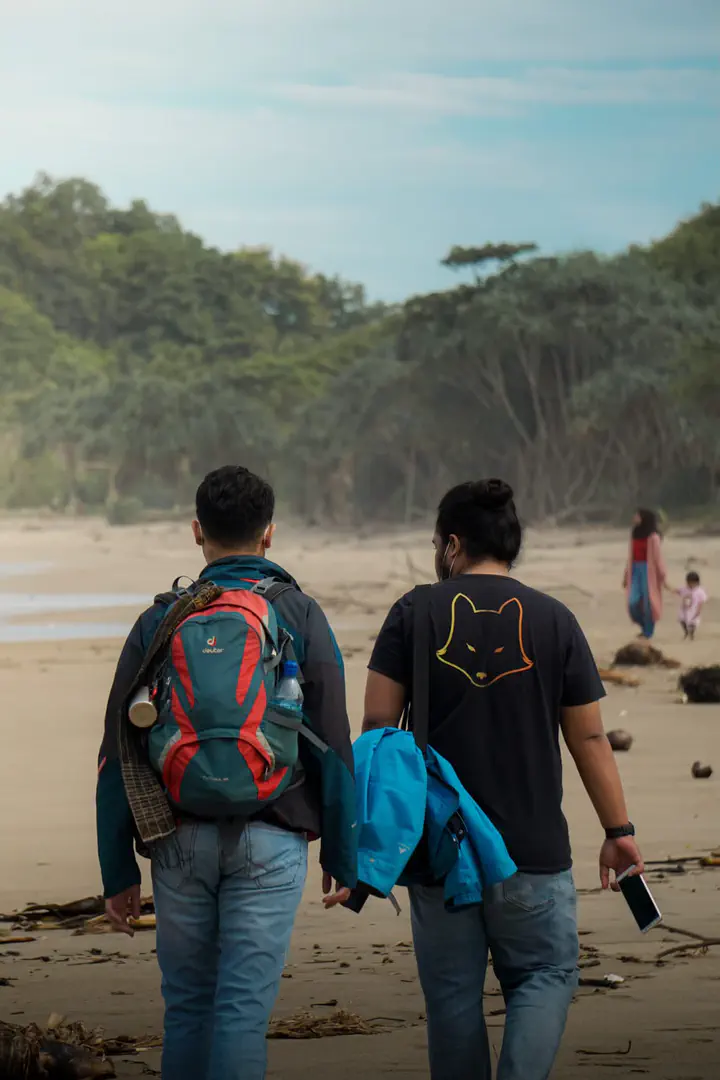When Small Talk Turns Offensive
If you don’t have anything nice to say, just shut your mouth up!
 Illustration. Copyright ©, 2017-2023 Edo Danilyan, All Rights Reserved
Illustration. Copyright ©, 2017-2023 Edo Danilyan, All Rights ReservedSmall talk is a common social practice that helps us break the ice, connect with others, and create a sense of familiarity. It serves as a tool to establish deeper conversation, especially in social settings or when meeting new people. However, what happens when seemingly harmless small talk takes a turn into something offensive? Alright, here’s my story.
Recently, I found myself in a situation where small talk turned sour. It’s all started after I had the opportunity to participate in a collaborative research project with researcher from another university. We ended up having a discussion in canteen. The initial meeting with this researcher left a rather negative impression. How could it not? He started with small talk like, “What semester are you in? You look really old.”
At first, I couldn’t help but think, “Is that an appropriate way to begin a conversation with a stranger? I mean, if you don’t have anything nice to say, could you just shut your mouth up?”. It’s truly perplexing why so many people here initiate conversations with offensive remarks. I would also like to add that this is not the first time I have experienced such situations. Previously, I have received comments like, “You look really fat, don’t you watch your diet?” or “Your skin looks dark, do you spend a lot of time in the sun?”. These situations make me feel uncomfortable and sometimes humiliated and really offended. I believe that good communication should be based on mutual respect and building each other up, rather than making derogatory comments about someone’s appearance.
We need to create and normalise an inclusive and positive environment for everyone involved. Let us try to engage in meaningful exchanges, embrace diversity, and foster a culture of respect and acceptance in all our interactions. It’s really easy, come on. Initiating small talk with neutral topics that are unlikely to offend or alienate others are really best option. Safe topics include current events, books, movies, hobbies, or shared experiences. Avoid delving into potentially controversial subject like personal matters until you have established a deeper connection with the person.
Approach small talk with an authentic curiosity about the other person. Ask open-ended questions that allow them to share their thoughts, opinions, and experiences. Actively listen to their responses and show interest by maintaining eye contact, nodding, and providing verbal cues to let them know you are engaged in the conversation.
Small talk often takes place in diverse settings, with people from different cultures and backgrounds. Recognize and respect these cultural differences by avoiding assumptions and stereotypes. Instead, approach conversations with genuine curiosity, asking open-ended questions that promote understanding and appreciation of diverse perspectives.
You could ask where do they come from, their particular experience like “Have you seen/read/heard anything interesting lately that you’d recommend?” “Do you have any upcoming travel plans or favorite travel destinations?” “What kind of hobbies or activities do you like to engage in?” “Are there any books/movies/TV shows that you’re currently enjoying?” “What do you like most about your job or field of study?” “How do you like to unwind or relax after a busy day?”.
ORRRR, YOU COULD GIVE THEM SMALL COMPLIMENT. Do you need examples? Really? Okay, okay. “I really like your choice of accessories. They add a nice touch to your outfit.” “You have a friendly and welcoming smile.” “You have a great sense of style; you put together your outfit beautifully.”
I think this is where I should end this article. I just want to say that mindful and respectful small talk sets the stage for meaningful connections and positive interactions. By consciously choosing neutral topics we can create an inclusive environment where everyone feels valued and respected. Small talk can be a gateway to building deeper relationships, fostering understanding, and ultimately cultivating a more harmonious and empathetic society.
Cheers. I’ll see you in the next one!